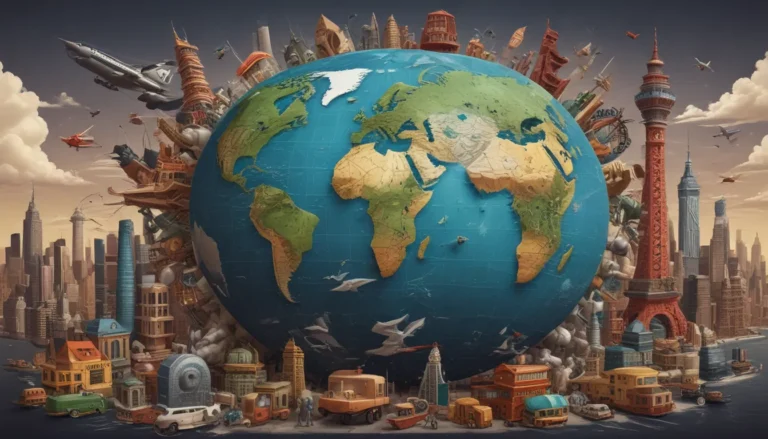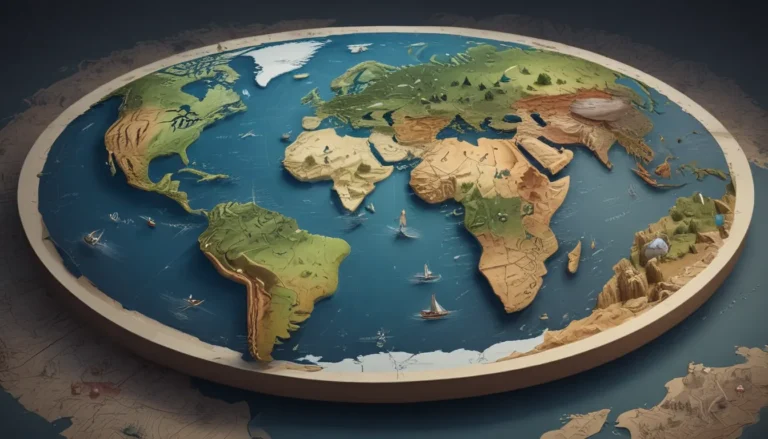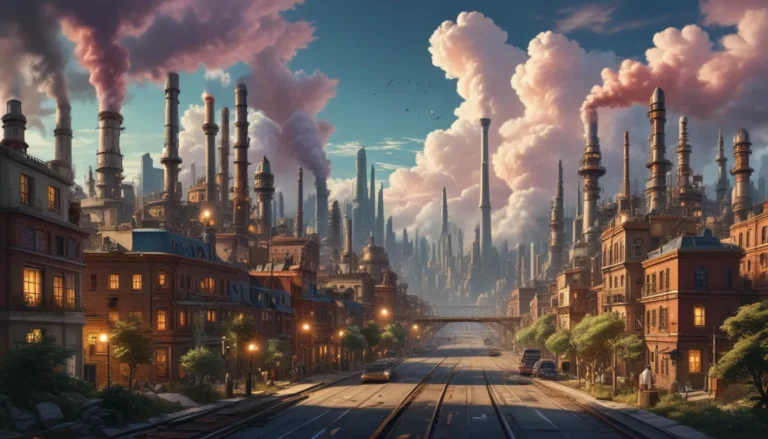A Note About Images: The images used in our articles are for illustration purposes only and may not exactly match the content. They are meant to engage readers, but the text should be relied upon for accurate information.
Climate change is an urgent issue that is reshaping our planet in profound ways. From rising temperatures to extreme weather events, the impacts of climate change are widespread and critical. In this article, we will delve into 12 surprising facts about how climate change is affecting our environment. By understanding these facts, we can grasp the urgency of addressing this global challenge and work towards sustainable solutions.
Rising Sea Levels: A Threat to Coastal Communities
As the planet’s temperatures continue to rise, the melting polar ice caps and glaciers contribute to an alarming increase in sea levels. This poses a significant threat to low-lying coastal communities worldwide, putting homes, businesses, and ecosystems at risk of flooding and erosion.
Biodiversity Under Threat
With rising temperatures, many plant and animal species struggle to adapt, disrupting ecosystems and leading to a loss of biodiversity. Habitats from coral reefs to tropical rainforests are at risk of irreversible damage, impacting the delicate balance of nature.
Extreme Weather Events on the Rise
Climate change is causing a surge in extreme weather events such as hurricanes, heatwaves, and droughts. These events not only affect human lives and infrastructure but also result in economic losses and displacement of communities. It is crucial to take action to protect our planet.
Melting Glaciers: A Water Scarcity Threat
Glaciers serve as natural reservoirs, storing freshwater. However, as the Earth’s temperature rises, glaciers melt at an accelerating rate, leading to water scarcity in regions that rely on glacial meltwater for drinking, irrigation, and hydropower.
Impact on Food Production
Changing weather patterns, including irregular rainfall and prolonged droughts, significantly impact agriculture. Crop yields are affected, leading to food shortages, price fluctuations, and potential conflicts over resources. Climate change poses a threat to global food security.
Acidifying Oceans
Increased carbon dioxide levels in the atmosphere not only contribute to global warming but also make oceans more acidic. This acidification harms marine life, especially species with calcium carbonate shells like corals, oysters, and certain plankton species.
Health Impacts of Climate Change
Rising temperatures, worsened air quality, and increased exposure to infectious diseases are all consequences of climate change. Heat-related illnesses, respiratory problems, and the spread of diseases like malaria and dengue fever pose significant health risks.
Social and Economic Inequalities Exacerbated
Vulnerable communities, including those in poverty or marginalized groups, often bear the brunt of climate change impacts. Limited access to resources, lack of infrastructure, and minimal adaptation strategies make it challenging for these communities to cope with and recover from climate-related events.
Loss of Arctic Sea Ice Threatens Wildlife
The melting of Arctic sea ice has a profound impact on polar bears, seals, and other wildlife that rely on ice as a habitat and for hunting. As the ice diminishes, their survival is at risk, leading to population declines and biodiversity loss.
Cultural Heritage at Risk
Rising sea levels, extreme weather events, and changing landscapes put cultural heritage sites, historical landmarks, and indigenous communities at risk. This threatens the loss of cultural identity, traditions, and valuable artifacts.
Renewable Energy: A Solution to Mitigate Climate Change
Transitioning to renewable energy sources such as solar, wind, and hydroelectric power is a crucial step in mitigating climate change. By reducing reliance on fossil fuels, we can significantly decrease greenhouse gas emissions and combat the impacts of climate change.
The Power of Individual Actions
While climate change may seem like a daunting challenge, individual actions can collectively make a positive impact. From reducing energy consumption to advocating for policy changes, each person can contribute to addressing climate change and protecting our planet for future generations.
Conclusion: Working Together for a Sustainable Future
Climate change presents significant challenges that require immediate action from individuals, communities, and governments. By raising awareness, implementing sustainable practices, and supporting scientific research, we can collectively address climate change and strive for a more resilient and sustainable future.
FAQ Section:
- Major Causes of Climate Change:
-
Human activities such as burning fossil fuels, deforestation, and industrial processes release greenhouse gases into the atmosphere, leading to climate change.
-
Impact on Weather Patterns:
-
Climate change can result in more frequent and intense weather events like storms, heatwaves, and droughts, disrupting rainfall patterns and seasonal changes.
-
Impact on Biodiversity:
-
Climate change can cause habitat loss, species extinction, and disruptions in ecosystems due to rising temperatures, changing precipitation patterns, and sea-level rise.
-
Benefits of Addressing Climate Change:
-
Addressing climate change can bring benefits like improved air quality, reduced vulnerability to natural disasters, increased energy efficiency, and the promotion of green jobs and sustainable economic growth.
-
Individual Contributions to Mitigating Climate Change:
- Individuals can contribute by reducing energy consumption, opting for renewable energy sources, using sustainable transportation, and adopting eco-friendly habits like recycling and water conservation.
By understanding the surprising facts about climate change impacts and taking proactive steps to address this global challenge, we can work towards a sustainable future for all. Let’s join hands and make a positive difference in fighting climate change. Together, we can protect our planet and ensure a better world for generations to come.






